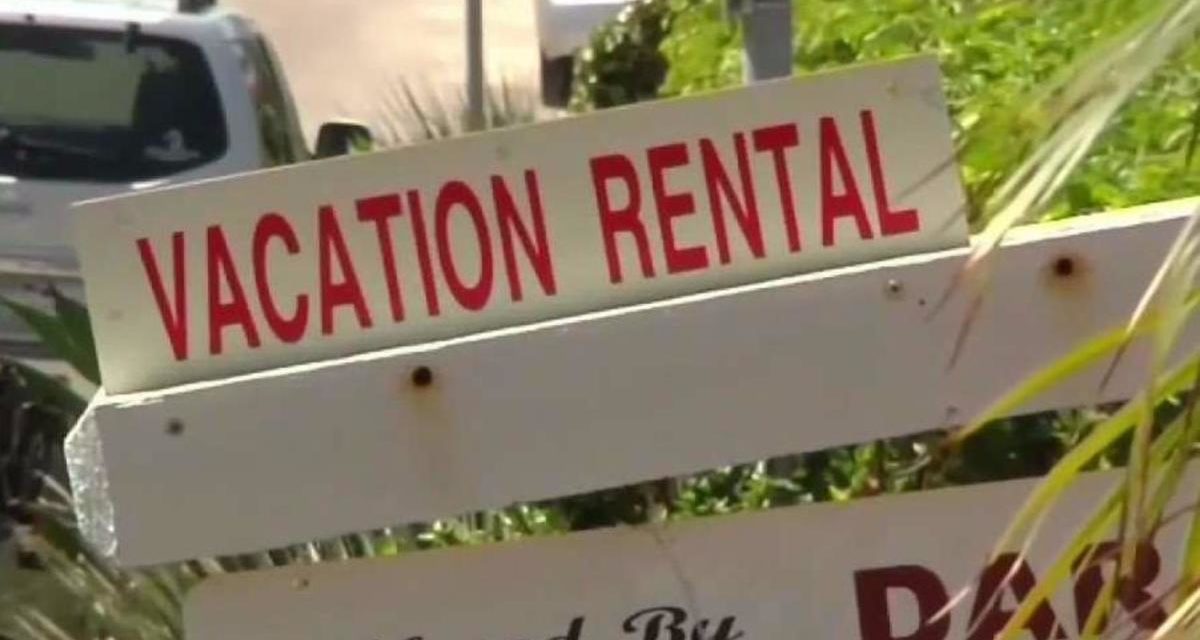CATHEDRAL CITY — With an estimated 352 short-term vacation rental units currently operating in the community, and mounting complaints, the City Council on June 26 will consider a temporary moratorium.
The city has received numerous complaints regarding excessive noise, parking, litter, disorderly conduct, and concerns regarding security and public safety at short-term vacation rentals. Adding to the proliferation of short-term vacation rental units is newer online technology that allows short-term vacation rentals to be marketed to a larger audience than ever before.
Between January and May 2019, the city received 36 noise-related calls from 22 rental properties. Six of those short-term vacation rental units account for two-thirds of the complaints.
The City Council is scheduled to consider an Urgency Ordinance to establish a temporary moratorium.
The proposed ordinance says temporarily foregoing short-term vacation rental units is in the best interest of public health, safety and welfare to allow the staff and the city time to adequately study the land use issues related to short-term vacation rentals.
If approved by four-fifths of the City Council, the ordinance would take effect immediately and remain in effect for 45 days.
What began as an incidental use in residential neighborhoods has become a trend, which under certain circumstances can have an overall negative impact on the welfare of the community, according to Tami Scott, Administrative Services Director.
Generally, there are two areas of concern related to an increase in the number of short-term vacation rental permits issued, according to Scott’s staff report. They are: public nuisance issues and density. Nuisance issues include noise complaints, habitual party houses, trash, parking and debris.
Density concerns relate to the number of short-term vacation rental units in any given area and the availability of parking and other city services
The emergency, temporary ordinance would allow the city time for any additional planning and research that might be necessary before the city considers any permanent regulation regarding short-term vacation rentals.
If approved, the moratorium would apply to pending applications for short-term vacation rental permits. The moratorium would not apply to existing short-term vacation rental permits, renewals of existing short-term rental permits, or areas governed by a homeowners association or community association and subject to covenants, conditions, and restrictions (CC&Rs) that expressly allow for short-term vacation rentals.
Cathedral City is not the only community that has wrestled with this issue.
On December 31, 2019, all existing permitted short-term rentals (STRs) within the R-1 and R-2 zones will terminate in Palm Desert. After that date, all STRs will be prohibited within those two zones.
After studying the impacts of Short-Term Rentals within the city of Palm Desert, the City Council on Dec. 14, 2017, approved amendments to the existing STR Ordinance. The amendments focused on enforcement, communication between owners and neighbors, operational standards, and zoning requirements, according to the city website.
The goal was to increase its enforcement efforts by proposing to increase the fines for any type of violation. The fines will extend to the operator, occupant, and owner. The existing ordinance had fines in the amounts of $250, $500, and $1,000. The new fines are as follows.
• First citation is $1,000.
• Second citation for the same offense within a 12-month period of the date of the first offense is $3,000.
• Third citation within a 12-month period of the date of the first offense is $5,000 and an immediate revocation of the STR permit for a period of two years.
The amendments also included a fine for violators who are operating an STR without a valid permit up to $5,000 for the first citation and each additional citation. The City has the right to refuse the issuance of any new or renewed STR permit for the cited property and/or to the cited owner and/or operator anywhere else within the City.
Additionally, the City has a contract with a swing shift Code Compliance Officer who works Thursday through Sunday from 4 p.m. to 1 a.m. This officer can respond promptly and assess the reported violation.
Palm Springs voters went to the polls in June 2018. They rejected a ban on short-term vacation rental units.
Image Sources
- Short-term Vacation Rental: NBC San Diego





![Enrolling Now, Rewarding Careers Ahead [Sponsored]](https://ukenreport.com/wp-content/uploads/2024/04/COD_heroes_1-1385-2-440x264.jpg)

